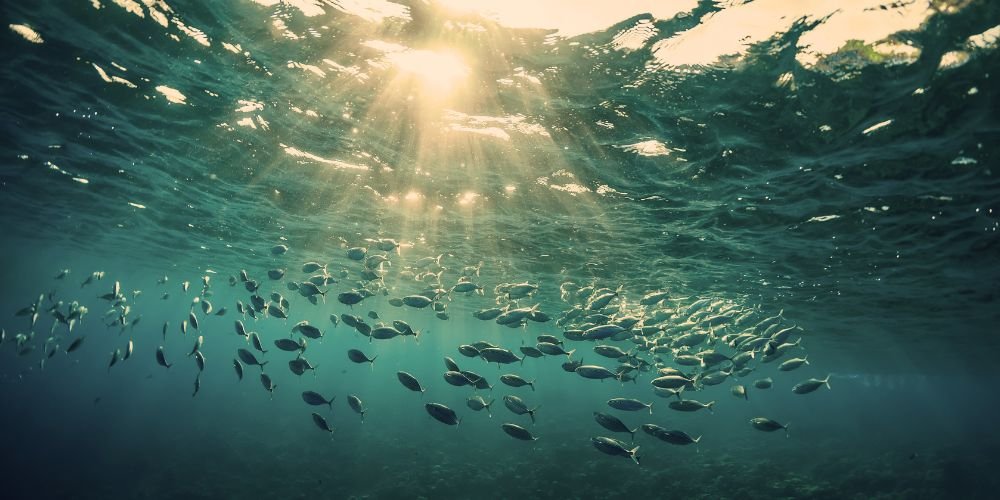Sustainable fisheries are pivotal in ensuring the health of marine ecosystems, the livelihoods of coastal communities, and the availability of seafood for future generations. This article explores the principles, challenges, and solutions to achieving sustainable fisheries management, emphasizing the need for conservation and responsible stewardship of marine resources.
Understanding Sustainable Fisheries
Sustainable fisheries management aims to maintain fish stocks at healthy levels while minimizing environmental impacts and supporting the socio-economic well-being of fishing communities. It involves adopting science-based approaches, implementing effective regulations, and promoting ecosystem-based management strategies to ensure the long-term viability of marine resources.
Stock Assessment and Management
Stock assessment is a critical component of sustainable fisheries management, involving the estimation of fish population abundance, growth rates, and reproductive capacity. By monitoring fish stocks and setting catch limits based on scientific advice, fisheries managers can prevent overfishing, rebuild depleted stocks, and maintain ecosystem resilience for future generations.
Ecosystem-Based Management
Ecosystem-based management considers the interdependencies and interactions within marine ecosystems, recognizing that the health of fish populations is linked to the health of their habitats and associated species. By incorporating ecosystem considerations into fisheries management decisions, such as habitat protection, bycatch reduction, and marine spatial planning, ecosystem-based management promotes holistic and sustainable approaches to fisheries management.
Stakeholder Engagement and Collaboration
Stakeholder engagement and collaboration are essential for successful sustainable fisheries management. They foster partnerships between government agencies, fishers, scientists, conservation organizations, and coastal communities. By involving stakeholders in decision-making processes, promoting transparency, and respecting traditional knowledge and rights, sustainable fisheries management can address diverse interests, build trust, and foster collective responsibility for marine stewardship.
Key Challenges in Achieving Sustainability
Despite efforts to promote sustainable fisheries, numerous challenges persist, including overfishing, habitat degradation, and illegal, unreported, and unregulated (IUU) fishing practices. Addressing these challenges requires concerted action and innovative solutions to promote responsible fishing practices and conserve marine biodiversity.
Overfishing and Unsustainable Practices
Overfishing occurs when fish stocks are harvested at a rate that exceeds their natural reproduction and growth rates, leading to population declines and ecosystem degradation. Unsustainable fishing practices, such as bottom trawling, bycatch, and illegal fishing, exacerbate the problem, undermining efforts to achieve sustainability and threatening the health of marine ecosystems.
Habitat Degradation and Loss
Habitat degradation and loss threaten marine biodiversity and the sustainability of fisheries, driven by coastal development, pollution, and habitat destruction. Protecting critical habitats, such as coral reefs, seagrass beds, and mangrove forests, is essential for maintaining ecosystem productivity, supporting fish populations, and enhancing resilience to environmental stressors.
Illegal, Unreported, and Unregulated (IUU) Fishing
Illegal, unreported, and unregulated (IUU) fishing undermines efforts to achieve sustainable fisheries management by circumventing regulations, exploiting vulnerable stocks, and undermining conservation measures. Combatting IUU fishing requires strengthening monitoring, control, and surveillance measures, enhancing enforcement capacity, and promoting international cooperation to address this global threat to marine resources.
Strategies for Sustainable Fisheries Management
To promote sustainable fisheries, stakeholders must implement a range of strategies and measures to conserve fish stocks, protect marine habitats, and support the socio-economic well-being of fishing communities.
Science-Based Management
Science-based management relies on robust data collection, stock assessment, and monitoring programs to inform fisheries management decisions and ensure the sustainability of fish stocks. Science-based management promotes evidence-based policies and adaptive management approaches to address changing environmental conditions and fishing pressures by integrating scientific research, data analysis, and stakeholder input into decision-making processes.
Marine Protected Areas (MPAs)
Marine Protected Areas (MPAs) are designated areas where human activities are regulated or restricted to conserve marine biodiversity, protect critical habitats, and restore fish populations. By establishing MPAs, fisheries managers can safeguard vulnerable species, promote habitat recovery, and enhance fisheries productivity while providing socio-economic benefits for local communities through sustainable tourism and ecosystem services.
Capacity Building and Alternative Livelihoods
Capacity-building and alternative livelihoods programs aim to empower fishing communities, enhance their resilience, and reduce their dependence on unsustainable fishing practices. By providing training, education, and support for alternative income-generating activities, such as aquaculture, ecotourism, and coastal resource management, these programs promote economic diversification, alleviate poverty, and enhance the long-term sustainability of fisheries-dependent communities.
Conclusion
Sustainable fisheries management is essential for ensuring the health of marine ecosystems, supporting the livelihoods of coastal communities, and preserving the availability of seafood for future generations. By adopting science-based approaches, implementing ecosystem-based management strategies, and promoting stakeholder engagement and collaboration, stakeholders can address key challenges and work towards achieving sustainable fisheries that benefit both people and the planet. As we strive to conserve marine resources and promote ocean health, collective action and commitment to responsible fishing practices are essential for achieving a sustainable and equitable future for fisheries and the communities that depend on them.





